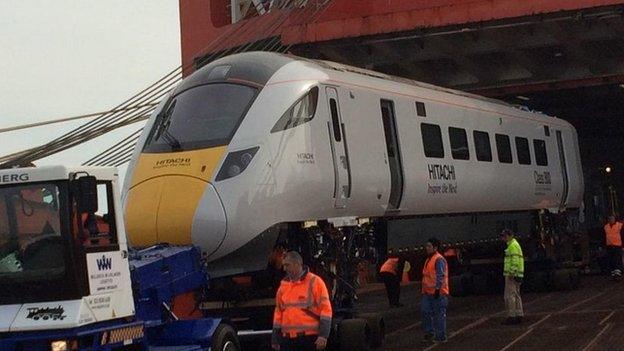First Great Western services disrupted in rail 24-hour strike
- Published
First Great Western's new high-speed trains will replace a fleet dating back to the 1970s
Rail services were disrupted as workers at First Great Western (FGW) staged a 24-hour strike.
Members of the Rail, Maritime and Transport union (RMT) walked out at midnight on Sunday as part of dispute over the introduction of new trains.
RMT leader Mick Cash said the strike action was being "solidly supported" by members.
FGW listed changes to its scheduled services, external, saying it was running 70% of its regular Sunday timetable.

RMT members staged a picket outside Exeter St David's Station.
A company statement said: "Trains may be busy and there will be limited food and drink services onboard. Last trains of the day are likely to leave significantly earlier than usual."
The dispute centres on staffing and on-board catering facilities on FGW's new fleet of Hitachi Inter City Express trains, with the union fearing guards and buffet cars will be disposed of.
Mr Cash said: "The union salutes the unity and determination of our members in this long-running dispute.
"Although we have held many hours of talks with First Great Western we have not been able to make enough significant progress over the core issues at the heart of the dispute."
Union members held a 48-hour strike over the same dispute in July and are also due to strike over the Bank Holiday weekend.
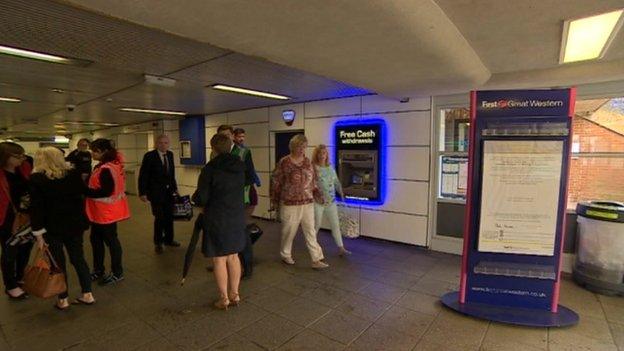
Staff at Swindon Station advised passengers about changes to the Sunday schedule
Both the union and company said they were available for talks before the next planned strike.
'More, not less'
FGW has said the new Super Express Trains would deliver "more seats, faster journey times and more frequent journeys for our passengers".
"Our plans mean more train managers and customer hosts on board our trains, not less," it added.
The company's revised timetable for the strike cancelled at least half of the inter city services with one train an hour between Paddington and Bristol, south Wales and the south west of England.
Trains on the Portsmouth to Cardiff line only ran between Salisbury and Swindon and there was no FGW trains to or from Weymouth.
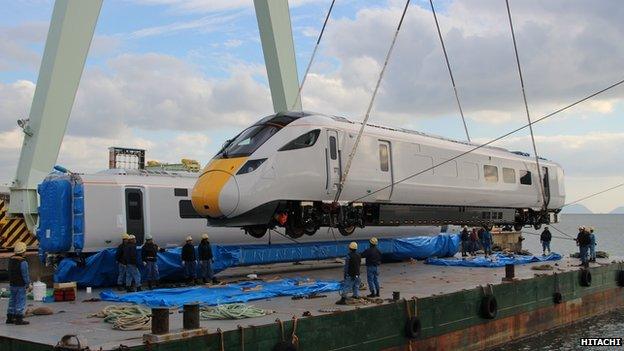
The first Hitachi Class 800 Super Express train arrived in February for testing on the rail network
In the Thames Valley nearly all the suburban services were scheduled to run as normal.
The operator runs train services between London Paddington, south Wales, the Cotswolds, the Thames Valley region and the West of England.
The first Hitachi trains will run on the Great Western main line from 2017 and the East Coast main line from 2018.
- Published21 August 2015
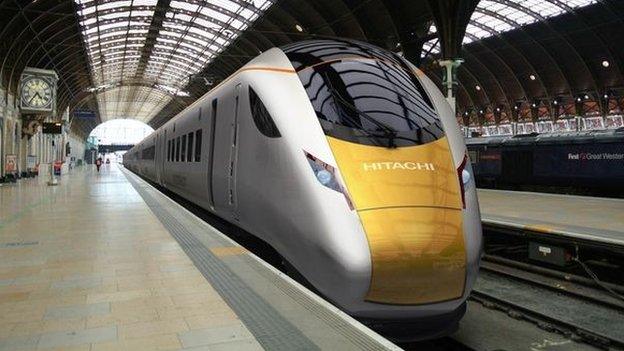
- Published3 August 2015

- Published10 July 2015
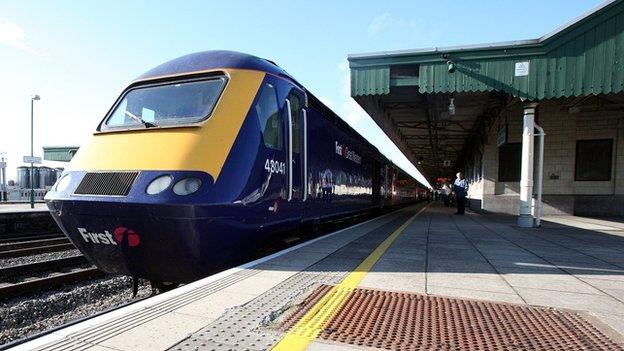
- Published9 July 2015
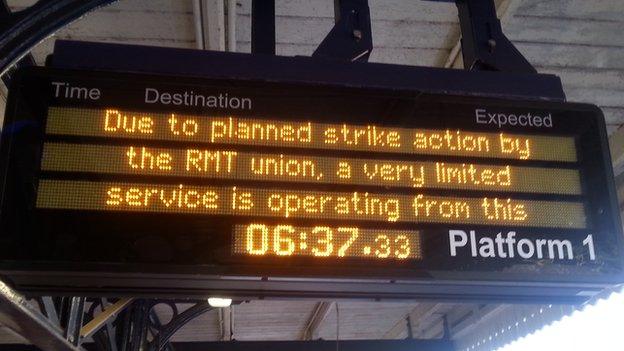
- Published30 June 2015
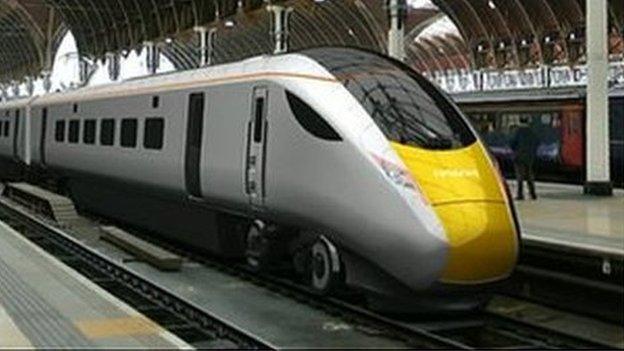
- Published12 March 2015
